
Soar is a national nonprofit organization that champions research and innovation to solve agriculture’s most pressing challenges.
As funding for agricultural research plummets, productivity slows, and extreme weather events and food insecurity increase, it’s no question that the future of food and agriculture is in jeopardy.
Through advocacy, storytelling, and problem solving, SoAR finds solutions to ensure a future where agricultural productivity, sustainability, and food security are guaranteed.
“SoAR champions food and agricultural research in the United States and globally.
Together with our partners, we are dedicated to growing public investments in agricultural research to support sustainable, thriving farms and a food-secure world that minimizes stress on natural resources.”
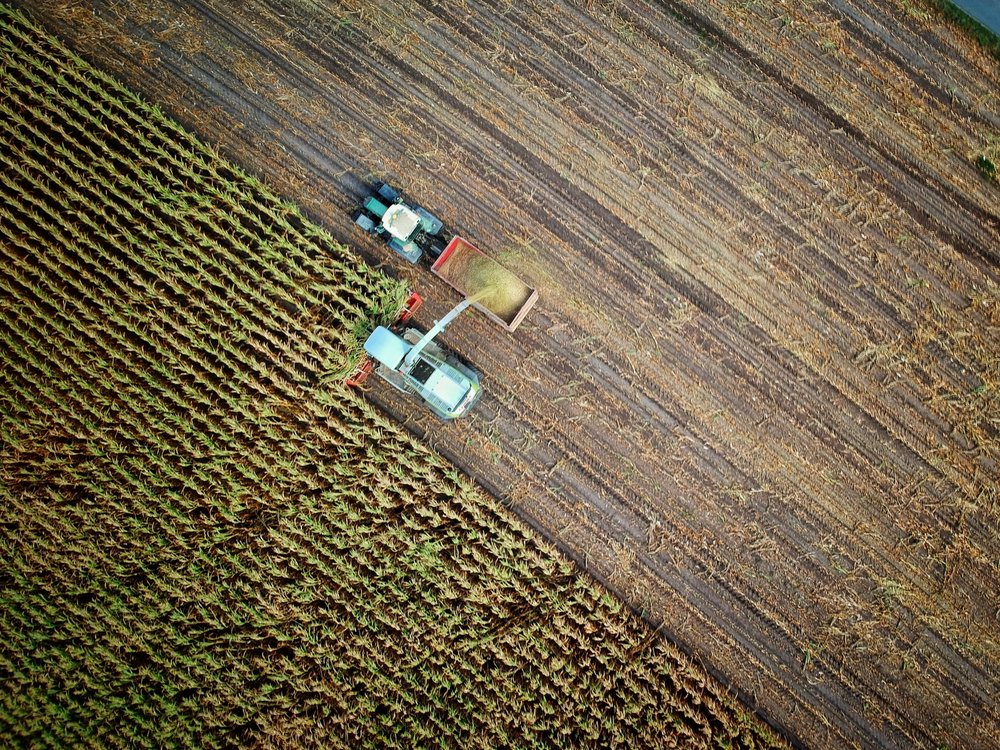
SoAR’s first project, advocating for increased funding for the nation’s leading competitive grants program for agricultural sciences.
The Agriculture and Food Research Initiative (AFRI) is the nation’s leading competitive grants program for agricultural sciences. The USDA National Institute of Food and Agriculture (NIFA) established the AFRI program in 2008 with authorization in the Farm Bill. AFRI was envisioned as the primary source of peer-reviewed, competitively awarded agricultural research grants. The program is an important source of federal research funding and the largest to address the many challenges confronting agriculture today with a process that is open to researchers from any institution.
AFRI was established by Congress in the 2008 Farm Bill and was reauthorized in the 2014 and 2018 Farm Bills. It is overseen by the USDA National Institute of Food and Agriculture (NIFA).
NIFA provides AFRI grants to support research, education and extension activities in six Farm Bill priority areas:
Plant Health and Production and Plant Products;
Animal Health and Production and Animal Products;
Food Safety, Nutrition, and Health;
Bioenergy, Natural resources, and Environment;
Agriculture Systems and Technology;
and Agriculture Economics and Rural Communities.
AFRI funding is based on merit and proposals are rigorously peer-reviewed, similar to how the National Institutes of Health (NIH) awards research grants. Each grant program has a unique request for applications that highlights requirements for the funding opportunity. View current AFRI RFAs to learn more.
AFRI may award grants to state agricultural experiment stations; colleges and universities; university research foundations; other research institutions and organizations; federal agencies; national laboratories; private organizations or corporations; individuals; or any group consisting of two or more of the aforementioned entities.
AFRI-funded integrated projects must include at least two of the three functions of agriculture knowledge – research, education, and extension – to ensure delivery of science-based knowledge to people, allowing them to make informed practical decisions.
To date, AFRI has funded 4,363 projects for a combined total of $2.25 billion invested in food and agriculture research. See our story bank for examples of projects funded by the AFRI program.
Within the Farm Bill, there are “titles” covering specific topics, including research. The 2018 Farm Bill’s “Research Title” authorizes the extramural research programs overseen through the National Institute of Food and Agriculture (NIFA). These programs provide the “capacity” and “competitive” research grants to universities (and other institutions) that enable our food system to thrive.
The Farm Bill funds research in two ways. In some cases, the legislation provides direct – or “mandatory” – funding for programs to receive on an annual basis (e.g. SCRI, OREI) or as a lump sum (e.g. FFAR). In most cases, however, the Farm Bill sets – or “authorizes” – a maximum amount of “discretionary” funding that a program can receive. The actual amount of “discretionary” funding these programs receive is determined annually through congressional legislation based on recommendations from the House and Senate Appropriations Committees.
In the 2018 Farm Bill, AFRI is authorized at $700 million a year. The 2018 Consolidated Appropriations Act funds AFRI at $400 million, which is $300 less than it is authorized to receive in the current Farm Bill.
SoAR believes that competitive research is key to a thriving agricultural system. We need the best researchers working on our toughest challenges if we are going to feed the world’s growing population while remaining a leader in agriculture. AFRI is the premier public funding source for food and agriculture grants that will impact the lives of producers and consumers. Our goal is to increase funding for all food and agricultural research, and for AFRI to reach its $700 million annual authorization level.
Learn more about AFRI on the USDA NIFA website.
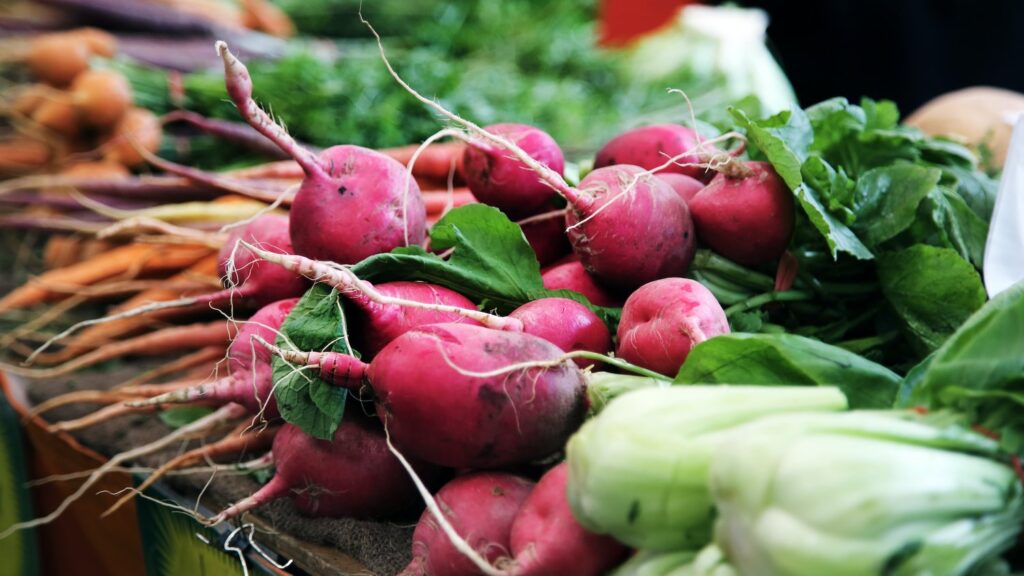
A compelling case to policymakers and the public for increased federal agricultural research funding.
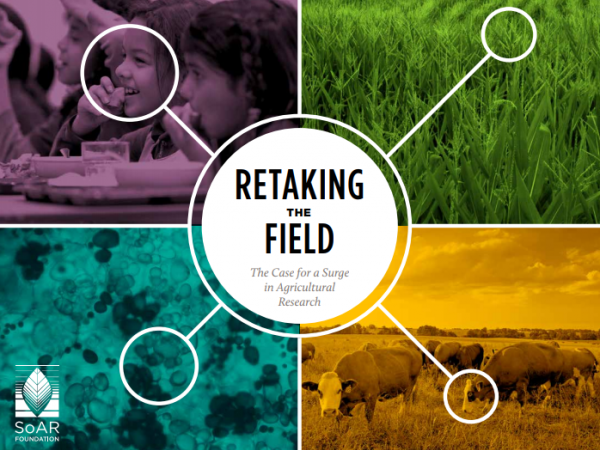
“Retaking the Field: The Case for a Surge in Agricultural Research” is a collaborative report from 13 partnering universities and the SoAR Foundation. The report provides a compelling case to policymakers and the public for increased federal agricultural research funding by celebrating the advances and exploring the untapped potential of the agriculture and food sciences.
The report includes examples of cutting edge production, health, food safety, and knowledge transfer research from: Cornell University, Iowa State University, Kansas State University, Massachusetts Institute of Technology, North Carolina State University, Purdue University, Stanford University, Tuskegee University, University of California – Davis, University of Florida, University of Illinois, University of Nebraska – Lincoln, and Washington University in St. Louis.
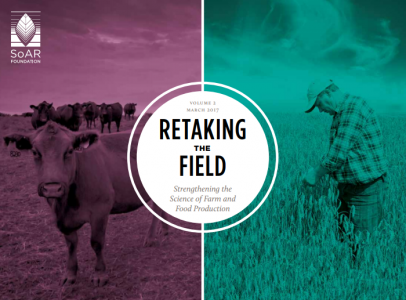
“Retaking the Field Volume 2: Strengthening the Science of Farm and Food Production” is a collaborative report from eleven universities and the SoAR Foundation. The report — the second in SoAR’s series — shows how scientists are solving some of the thorniest questions in food production and highlights research breakthroughs funded by the USDA National Institute of Food and Agriculture’s (NIFA) Agriculture and Food Research Initiative (AFRI). It is part of SoAR’s broader education and advocacy to encourage additional federal support for food and agricultural research.
From removing peanut allergens to protecting tomatoes with caterpillar saliva, “Retaking the Field” tells stories about exciting advances and innovative research in the animal and plant sciences from Cornell University, Iowa State University, Kansas State University, Michigan State University, North Carolina Agricultural & Technical State University, Penn State University, Ohio State University, Texas A&M University, University of California – Davis, University of Nebraska – Lincoln, and Virginia Polytechnic Institute and State University.
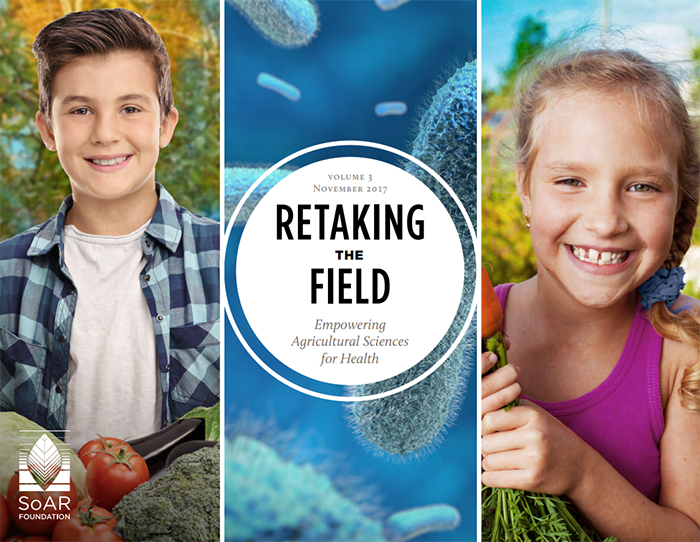
“Retaking the Field Volume 3: Empowering Agricultural Sciences for Health” is a collaborative report from eleven universities and the SoAR Foundation. The report — the third in SoAR’s series — explores the success of research projects funded by the Agriculture and Food Research Initiative (AFRI), the flagship competitive grants program of the USDA’s National Institute of Food and Agriculture (NIFA). It is part of SoAR’s broader education and advocacy initiative to encourage additional federal support for food and agricultural research.
This issue examines how scientists are solving challenging and critical public health issues related to zoonotic diseases, nutrition, and food safety. From controlling drug-resistant bacteria to improving gut health, “Retaking the Field” tells stories about exciting advances and innovative research in the animal and plant sciences from Colorado State University, Cornell University, Iowa State University, Michigan State University, North Carolina Agricultural & Technical State University, Penn State University, Purdue University, Texas A&M University, University of California, Davis, University of Nebraska – Lincoln, and University of Wisconsin – Madison.
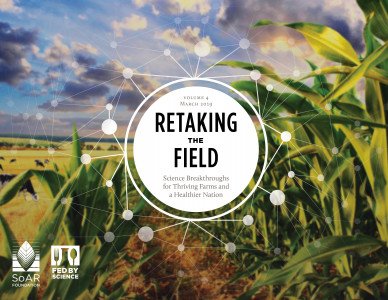
“Retaking the Field Volume 4: Science Breakthroughs for Thriving Farms and a Healthier Nation” is a collaborative report from 20 FedByScience universities and the SoAR Foundation. The report highlights research projects in the five Science Breakthroughs areas identified as the most important fields to advance in agriculture by the year 2030: genomics, microbiomes, sensors, data and informatics, and transdisciplinary research. The report shows how scientists funded by USDA’s National Institute of Food and Agriculture (NIFA) are leveraging federal resources to advance the five breakthroughs areas.
From changing how wheat pollinates to using drones and sensors that optimize farming methods, “Retaking the Field” tells stories about exciting advances and innovative research in agricultural sciences.
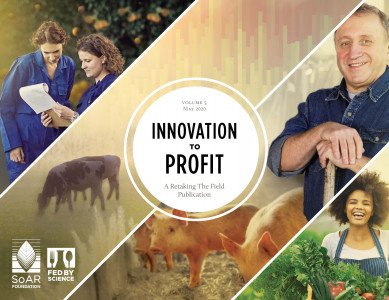
“Retaking the Field Volume 5: Innovation to Profit” explores how federally funded agricultural research strengthens farmers and ranchers’ bottomline by reducing costs and risks, increasing profits, and laying the groundwork for new products and industries. With powerful examples from universities across the country, it describes how research can generate outsized economic benefits that extends for decades. The report is in partnership FedByScience universities and the SoAR Foundation. Sponsors include the Association of Public and Land-grant Universities and the Association of American Veterinary Medical Colleges.
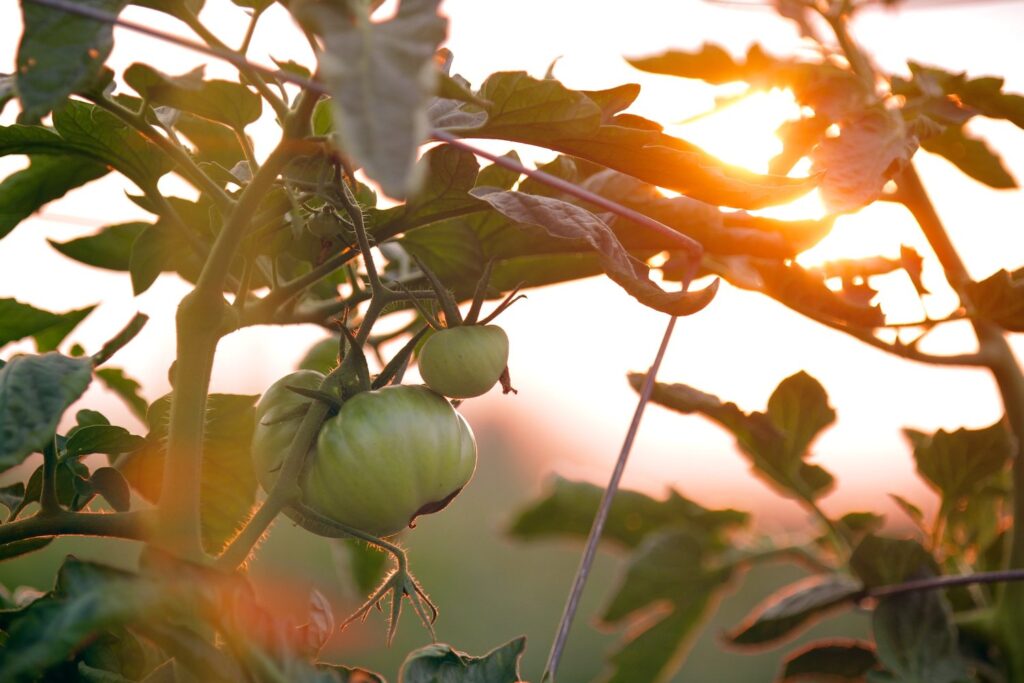
A collaborative communications initiative to raise the visibility of the value of public investments in agricultural research.
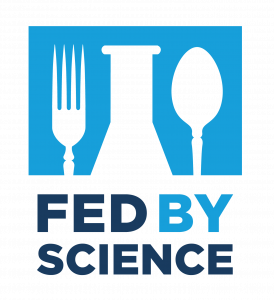
SoAR developed and organized FedByScience, a collaborative communications initiative to raise the visibility of the value of public investments in agricultural research.
Through this initiative, participating universities are joining together to tell stories of compelling research with a goal of increasing funding for the USDA’s National Institute of Food and Agriculture (capacity, extension, and competitive) as well as state-level research.
The Advisory Committee of deans and senior leaders provides counsel. SoAR produced a video, created an extensive interactive story bank, and launched FedByScience in April 2018 with congressional briefings and media outreach.

Identification of innovative, emerging scientific advances for making the U.S. food and agricultural system more efficient, resilient, and sustainable.
SoAR catalyzed the development of a major new agricultural research agenda for the U.S. from the National Academies, entitled “Science Breakthroughs to Advance Food and Agricultural Research by 2030.” Released in July 2018, Science Breakthroughs 2030 identifies innovative, emerging scientific advances for making the U.S. food and agricultural system more efficient, resilient, and sustainable. The report explores the availability of new scientific developments across all research disciplines that could accelerate progress in food and agriculture, presenting five breakthroughs for prioritization:
Increasing understanding of the animal, soil, and plant microbiomes and their broader applications across the food system.
Harnessing the potential of genomics and precision breeding to improve plant and animal traits.
Capitalizing on agri-food informatics to enable advanced analytics using data sciences, information technology, and artificial intelligence.
Employing existing sensors and developing new sensing technologies to enable rapid detection and monitoring.
Prioritizing transdisciplinary science and systems approaches.
The idea for Science Breakthroughs 2030 grew out of a need to present a compelling case to policymakers for additional public investment in agricultural research. Working with its Science Advisory Committee, SoAR produced a process for the report’s development; gathered input from stakeholders; selected the National Academies (NASEM) to lead the study after overseeing an RFP process; raised over $1 million from organizations and federal agencies; and spearheaded outreach for the report’s launch with a congressional reception.
The final report was made possible with funding from the SoAR Foundation, the Foundation for Food and Agriculture Research, USDA National Institute of Food and Agriculture, National Science Foundation, US Department of Energy, and 23 other foundations, scientific societies, commodity groups, and university associations.
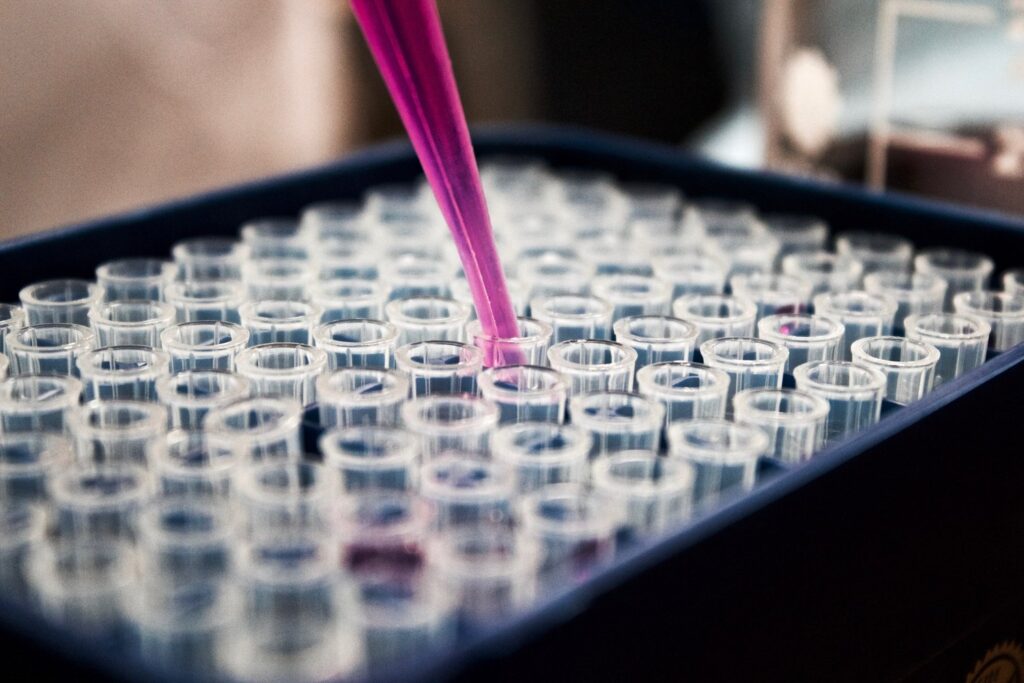
Plant-focused research recommendations to inform the decision-making of agricultural research funders.
SoAR released a new report entitled Developing Global Priorities for Plant Research on October 16th, 2018. The report presents a concise set of plant-focused research recommendations to inform the decision-making of agricultural research funders. It is the result of a series of interviews and an in-person meeting with twelve leading plant scientists from Europe, China, and the United States.
Developing Global Priorities for Plant Research describes five “approaches” to addressing the greatest challenges facing agriculture in the 21st Century, including increasing production while reducing inputs in a changing climate. It emphasizes how the advent of new tools and technologies – such as CRISPR, computer modeling, and sensors – have positioned researchers to deliver unprecedented solutions. The report also stresses the importance of employing a “system of systems” and “interdisciplinary” approach as well as concentrating on “crop-agnostic” research in which discoveries can be readily translated across a wide range of species. This critical work, however, will rely on redoubling recruitment and training of the next generation of researchers.
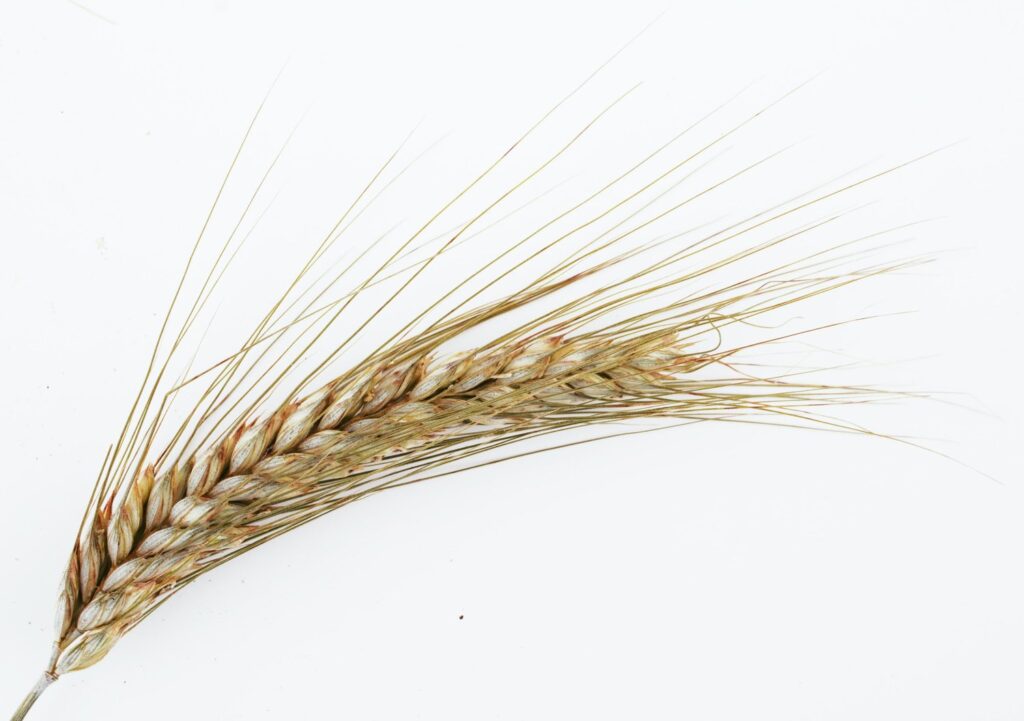
An examination of the benefit-cost ratio of International Agricultural Research Investment found a 10:1 return.
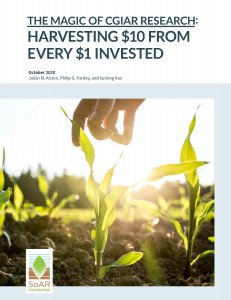
The Supporters of Agricultural Research (SoAR) Foundation released The Payoff to Investing in CGIAR Research report,coauthored by Julian M. Alston, University of California, Davis; Philip G. Pardey, University of Minnesota; and Xudong Rao, North Dakota State University. SoAR commissioned this work to examine the benefit-cost ratio of CGIAR investments. Formerly called the Consultative Group on International Agricultural Research, CGIAR is the world’s largest global agricultural research network. The report found that CGIAR investments of roughly $60 billion in present value terms has generated a benefit-cost ratio of 10 to 1 over the past five decades.
Established in 1971, CGIAR comprises 15 research centers working under One CGIAR mandate to reduce poverty, enhance food and nutrition security, and improve natural resources. CGIAR’s early work included developing high-yielding wheat and rice varieties, which is credited with spurring the Green Revolution and saving a billion lives primarily in Asia where many people were on the brink of starvation. Today, CGIAR focuses on ending hunger by 2030 through science to transform food, land, and water systems in the climate crisis.
This report provides a strong economic investment case for funding partners as they consider future investments in international agriculture research and development. With a strong presence and long-term partnerships in developing countries, CGIAR is uniquely positioned to further create and develop needed innovations. Additional investments in CGIAR research would continue to yield dramatic returns on investment and benefits for poor communities, particularly in Africa and South Asia where smallholder farmers and local food systems are most vulnerable.
SoAR strongly encourages governments and foundations to accelerate their funding of CGIAR to strengthen smallholder agriculture and protect food systems for future generations.
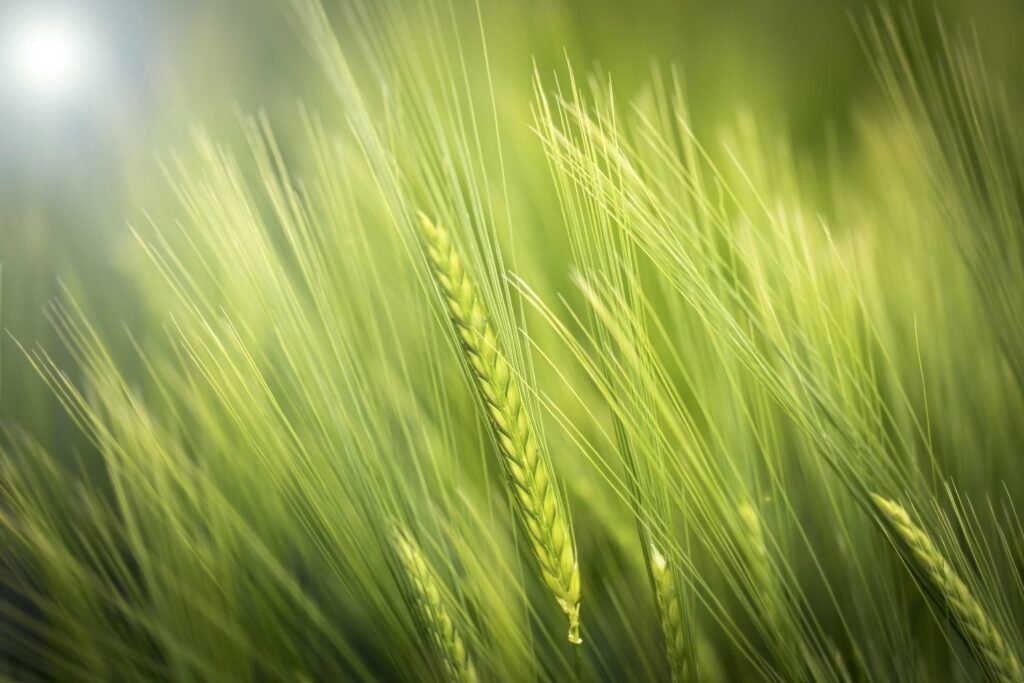
Development and prioritization of global plant research directions, strategies for cooperation and collaboration, and potential funders for the coming decade.
The Supporters of Agricultural Research (SoAR) Foundation released Developing Global Priorities for Plant Research: Adapting Agriculture to Climate Variability. With support from The New Venture Fund, U.S. Department of Agriculture’s (USDA) National Institute of Food and Agriculture (NIFA) and in collaboration with Virginia Tech, this report is the outcome of a follow-up international workshop (to the 2018 convening) with notable plant scientists who developed and prioritized global plant research directions, strategies for cooperation and collaboration, and potential funders for the coming decade.
The panel of global plant scientists concluded that strategies for developing crops for increased yield and yield stability under stress from external factors, including climate change, will need to include advanced knowledge of plant genetic diversity, climate variability and environmental impacts. These knowledge goals have been grouped into five overlapping research focus areas that serve as platforms for future research: Genetic Diversity; Adapting Agriculture to a Changing Climate; Soil; Nutrient and Water Use Efficiencies; and Pests and Pathogens.
In light of the COVID-19 pandemic, this workshop was held virtually with twelve leading scientists from the United States, Europe and China. The participants work with diverse crop species in the areas of crop phenotyping, plant engineering and breeding, plant-microbe interactions, biotic and abiotic plant stresses, photosynthetic efficiency and crop management.
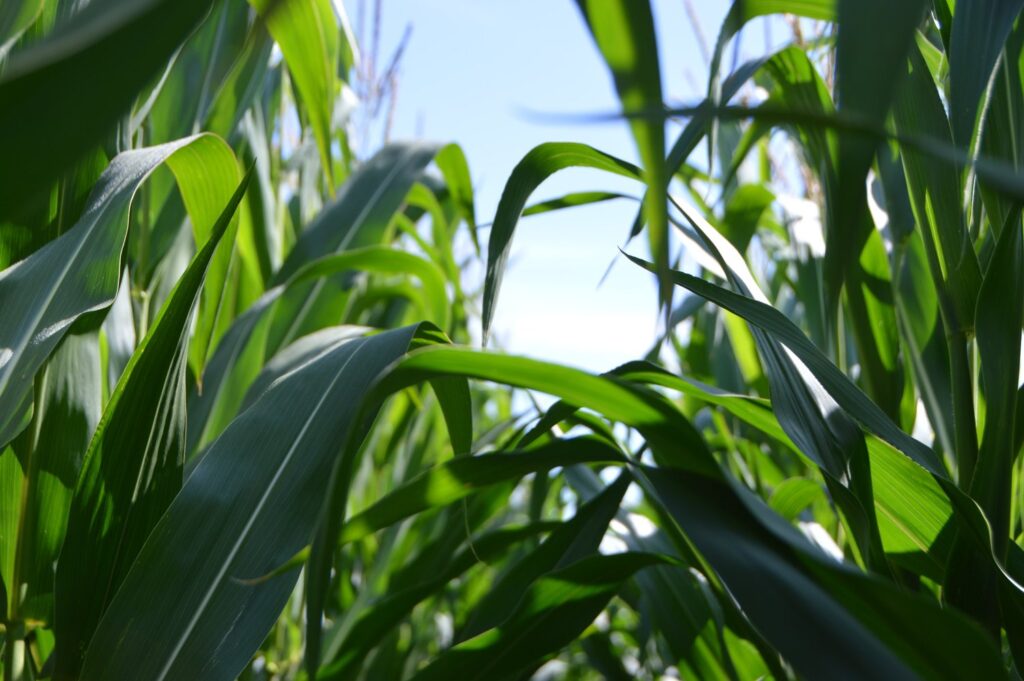
Launched at COP27, this report explores the potential for gene editing technology to help drive climate adaptation tools for farmers while mitigating the climate impact of global agriculture.

In this report from SoAR, Dr. Dan Voytas of the University of Minnesota explains the potential to use gene editing tools to accelerate agricultural climate adaptation and mitigation. Launched at COP27 in Sharm el-Sheikh, Egypt, this report outlines a promising research and development pipeline to deliver the tools farms need to thrive in a changing climate.
EXECUTIVE SUMMARY
Climate change poses an enormous challenge to plant agriculture. Crops will need to endure weather extremes, including heat, drought and excess precipitation. New pathogens will also emerge as ecosystems adapt to new climate norms and the geographic range of insects and fungal and bacterial pathogens are altered. There is clearly a need for new crop varieties that can withstand these abiotic and biotic challenges. Further, these new varieties will need to rely on fewer inputs, such as water and fertilizer, as such inputs will become increasingly costly and difficult to attain.
Whereas some new plant varieties will help to weather the storm, others can actually mitigate the climate problem. Plants naturally fix carbon from the atmosphere, and even a modest increase in the amount of carbon that is captured by major row crops and converted to biomass equates to millions of metric tons of fixed CO2 per year. Further, if the increase in biomass occurs in the roots in the form of biomolecules that are slow to degrade, then captured carbon will only slowly be released back into the atmosphere.
Over the past 120 years, plant breeders have made remarkable progress in developing new crop varieties with novel traits, including increased productivity. However, the pace and scale of climate change will make it difficult for traditional breeding methods to generate the varieties needed to sustain food security and ameliorate the problem of increased CO2. New tools are available to help tackle this problem. In the past decade, powerful gene editing technologies have been developed that give us control over the plant’s genetic blueprint. Gene editing makes it possible to introduce precise changes to the plant genome, accelerating the production of new crop varieties, including those that better withstand the stresses induced by a changing climate as well as those that capture and store excess atmospheric CO2.